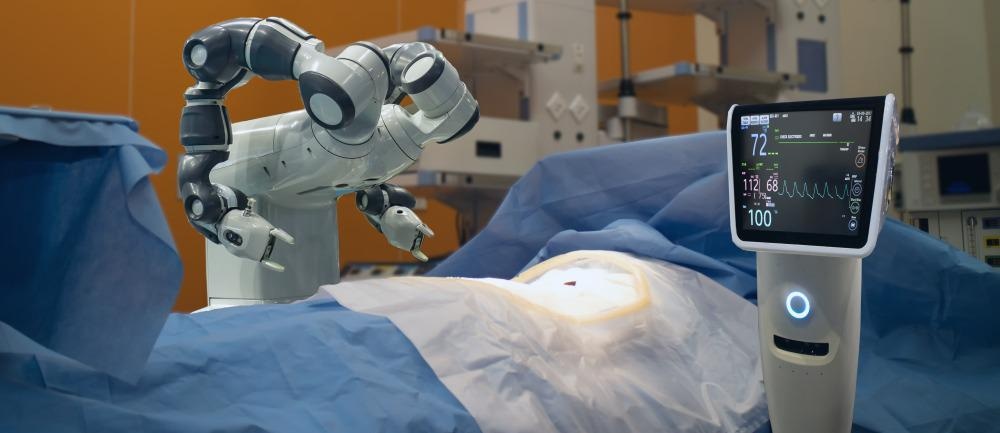
.1. AI-Powered Robots: Reshaping Healthcare and Manufacturing Industries.1. AI-Powered Robots: Reshaping Healthcare and Manufacturing Industries Artificial intelligence (AI)-powered robots are rapidly transforming industries, revolutionizing healthcare and manufacturing. These advanced machines leverage machine learning algorithms, data analytics, and sophisticated sensors to enhance human capabilities and drive innovation. Healthcare * Surgical Precision: AI-powered robots perform minimally invasive surgeries with unmatched precision, reducing risks and improving patient outcomes. Da Vinci Surgical System, for instance, provides surgeons with a 3D view and tremor-reducing technology. * Diagnostics and Monitoring: Robotic devices integrate advanced imaging and analytics capabilities to aid in disease diagnosis and monitoring. These systems can detect subtle abnormalities and patterns that humans may overlook. * Patient Care: AI-powered robots assist in patient care, performing tasks such as medication dispensing, vital sign monitoring, and companionship. This frees up healthcare professionals to focus on more complex tasks, improving overall patient experience. Manufacturing * Automation and Efficiency: Robots automate repetitive and time-consuming tasks, increasing production efficiency and productivity. Autonomous guided vehicles (AGVs) transport materials and products throughout factories, streamlining logistics. * Quality Control: AI-powered robots inspect products with precision and consistency, identifying defects faster and more accurately than humans. This reduces rejects and maintains product quality. * Collaborative Teams: Robots work alongside human employees in collaborative teams, enhancing human capabilities by providing assistance with heavy lifting, data analysis, and problem-solving. Benefits and Challenges * Improved Accuracy and Productivity: AI-powered robots perform tasks with high levels of accuracy and speed, leading to increased output and reduced errors. * Cost Savings: Automation and increased efficiency can significantly reduce production and operating costs, making businesses more competitive. * Enhanced Safety: Robots can perform hazardous or repetitive tasks, reducing risks for human workers. * Ethical and Labor Concerns: The use of robots in healthcare and manufacturing raises ethical questions about job displacement and the potential impact on human-machine interactions. Conclusion AI-powered robots are poised to reshape healthcare and manufacturing industries by delivering greater precision, efficiency, and enhanced safety. However, careful consideration must be given to the ethical implications and the potential impact on human workers. As technology continues to advance, these robotic systems will undoubtedly play an increasingly pivotal role in shaping the future of these vital sectors.
Posted inNews